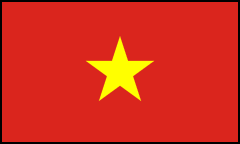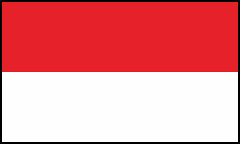Viettonkin Consulting is thrilled to share the comprehensive and collaborative efforts between Vietnam and the United States across various critical domains. From addressing climate change and advancing clean energy solutions in the Mekong Delta and Red River Delta regions to enhancing healthcare and pandemic response, the partnership is poised for remarkable impact. Additionally, both nations are committed to addressing the consequences of war, promoting human rights, and fostering cultural exchanges. This partnership extends its influence to regional and international forums, ensuring peace, stability, and cooperation on a global scale.
Cooperation on climate, energy, environment and health
Vietnam and the United States will work together in the Mekong Delta and Red River Delta regions, focusing on cross-sectoral adaptation to climate change; reducing pollution; and providing voluntary technical assistance to modernize power transmission infrastructure, integrate renewable energy, develop climate markets, find energy storage solutions, and improve regulatory frameworks to enable a timely and equitable energy transition.
The two leaders acknowledged the significance of collaboration between their respective nations, as well as with non-governmental experts, to advance sustainable agriculture and biodiversity conservation, mitigate pollution, and bolster the resilience of vulnerable communities. This includes efforts to prepare for disasters. The United States endorses Vietnam's drive to enhance clean energy production.
President Biden expressed his appreciation for Vietnam's climate agreements under the Just Energy Transition Partnership (JETP) and its aim of achieving net-zero greenhouse gas emissions by 2050. General Secretary Nguyen Phu Trong welcomed the United States' efforts in mobilizing public and private sector funding to aid Vietnam in implementing the JETP and collaborating with the international community to ensure its success. The JETP aims to maintain national sovereignty in energy, security, and financial matters while still promoting sustainable and environmentally friendly practices.
The United States has committed to providing financial and advanced technological support to assist Vietnam in meeting its obligations under the international climate agreement. Vietnam is open to receiving funding for climate change response, energy transition, green growth, and energy infrastructure regeneration from international financial institutions like the World Bank.
Both parties expressed their deep appreciation for the work of the US Centers for Disease Control and Prevention (CDC) in Vietnam over the last 25 years. They also welcomed the establishment of the CDC Regional Office in Hanoi in 2021 and planned to establish Vietnam's CDC. The two leaders acknowledged the contributions made by cooperation between the two countries in responding to the Covid-19 pandemic, and pledged to strengthen coordination to ensure health security, including preventing, detecting, and responding to pandemics and other global disease risks.
The two leaders emphasized the significance of working together to address the threat of epidemics resulting from human-animal contact. They also discussed the need to expand vaccination efforts and support public health activities, including training individuals in laboratory science and public health under the One Health initiative).
The United States has expressed its support for programs aimed at preventing and controlling HIV and tuberculosis epidemics in Vietnam. This support is being channeled towards the country's critical medical facilities such as Bach Mai Hospital and Cho Ray Hospital to help achieve full control of HIV epidemics and the eradication of tuberculosis by 2030, in line with both global agreements and Vietnam's national program. Additionally, the United States is backing Vietnam's efforts to develop its pharmaceutical industry as part of a broader move to strengthen global health security cooperation.
The United States is prepared to enhance cooperation with the aim of improving regulation compatibility. This will help Vietnam take an active role in the medical supply chain, both regionally and internationally.
Cooperate in overcoming the consequences of war
The two leaders expressed their appreciation for the strong collaboration between Vietnam and the United States in addressing the aftermath of the war. They considered this a crucial element in the relationship between the two nations, which helps foster trust and deepen mutual understanding.
Vietnam and the United States have expressed their commitment to finishing the decontamination of Bien Hoa airport, and to advancing the clearance of mines and explosives. Both countries have agreed to increase their support for people with disabilities, regardless of the cause, and to assist the Vietnam National Mine Action Center in enhancing its capabilities, particularly in improving coordination between central and local levels. Additionally, both countries pledge to continue their support for Vietnam in locating missing soldiers and improving the country's DNA testing capacity.
President Biden expressed his gratitude on behalf of the American people for Vietnam's long-standing support in locating information and remains of US soldiers who went missing during the war. Vietnam pledged to continue comprehensive cooperation with the United States in the search for the remains of US soldiers missing during the war.
Culture - people-to-people exchange - sports – tourism
The two leaders welcomed the significant increase in people-to-people exchange activities between their countries. They agreed to collaborate in promoting two-way tourism, cooperation between enterprises in both countries, expert and academic exchanges, and learning opportunities.
The two parties aim to strengthen cooperation between US states and Vietnamese provinces and cities in practical and effective ways, with specific programs and projects. They also seek to enhance relationships between communities, industries, enterprises, young generations, and people's organizations of the two countries through exchanging delegations, organizing joint seminars, and engaging in cultural exchange activities involving arts, music, and sports. Finally, they will coordinate to organize commemorative activities to celebrate the relationship between the two countries.
The two leaders expressed their appreciation for the valuable contributions of the Vietnamese community in the United States towards strengthening the relationship between the two countries. President Biden acknowledged the Vietnamese American community as one of the most successful, dynamic, and innovative communities in the United States.
President Biden congratulated Vietnam on its important contributions to global peace and stability. These include participating in United Nations peacekeeping operations, as well as providing disaster response capacity and search and rescue to handle natural disasters around the world.
The two parties plan to promote the role of dialogue and consultation mechanisms formed between their respective Ministries of Defense, as well as between other ministries and branches. They aim to achieve effective cooperation in humanitarian and constructive efforts, such as overcoming the consequences of war, military medicine, UN peacekeeping, maritime law enforcement, and maritime security capacity, among other fields of mutual interest. This cooperation will be carried out in compliance with the signed documents and agreements between the leaders and agencies of the two countries.
The two parties emphasized the importance of promoting cooperation between law enforcement and criminal justice agencies of both countries. They decided to deepen existing cooperation in the fields of law enforcement, security, and intelligence. They will coordinate, exchange information, and share experiences to improve the effectiveness of maritime cooperation and the prevention and combat of transnational crime, piracy, money laundering, human trafficking, illegal trafficking of narcotic substances and drug precursors, cyber crimes, and high-tech crimes.
The two leaders have agreed to create a Security and Law Enforcement Dialogue mechanism involving relevant law enforcement, security, and intelligence agencies. Both countries denounce all forms of terrorist acts and extremist violence, and anticipate working together to combat terrorism and the funding of terrorist organizations in accordance with the United Nations Charter and other relevant international commitments that both countries have agreed to as members.
The two leaders expressed their satisfaction with the progress made in promoting defense trade and industry cooperation, taking into account each other's conditions. The United States committed to continuing its support for Vietnam in enhancing its defense self-reliance, in line with Vietnam's specific requirements and established mechanisms.
Promote and protect human rights
The two leaders emphasized the significance of promoting and safeguarding human rights, as well as adhering to each country's constitution and international obligations. They agreed to sustain their support for the advancement and preservation of human rights through open and productive channels of communication, such as the Human Rights Dialogue and the yearly Vietnam-US Labor Dialogue. This will foster greater mutual understanding and reduce any discrepancies.
The leaders of both countries emphasized the importance of cooperation to ensure that everyone, including vulnerable groups regardless of gender, race, religion, or sexual orientation, as well as people with disabilities, can fully enjoy their human rights. Vietnam and the United States acknowledge that human rights, regional stability, world peace, and sustainable development are interrelated. Both parties recognized the valuable contributions of social and religious organizations in fields such as education, healthcare, and social services in both countries.
Coordinate on regional and international issues
Vietnam and the United States aim to improve coordination on regional and global issues of mutual interest and concern. This will contribute to joint efforts in maintaining peace, stability, cooperation, and development in the region and the world. The two parties have agreed to strengthen coordination at regional and international forums, including the United Nations, Asia-Pacific Economic Cooperation (APEC), East Asia Summit (EAS), ASEAN Regional Forum (ARF), ASEAN Defense Ministers Meeting Plus (ADMM+), and other relevant ASEAN Ministerial conferences.
Both parties agree on promoting multilateralism, respecting international law (including the United Nations Charter), and promoting an open and inclusive regional structure with ASEAN playing a central role. Vietnam values the United States' robust support for ASEAN's central role and ASEAN's vision for the Indo-Pacific region.
ASEAN-US Comprehensive Strategic Partnership was recently established, and a special summit will be held in Washington, DC in 2022. General Secretary Nguyen Phu Trong expressed appreciation for the United States' commitment to ASEAN and encouraged its continuation.
During their meeting, President Biden expressed his admiration for ASEAN's accomplishments and reiterated the importance of ASEAN's central role. The two leaders also commended Indonesia for its upcoming presidency in 2023 and welcomed Laos as the next country to take over the ASEAN presidency in 2024.
The General Secretary, Nguyen Phu Trong, expressed his appreciation for the United States hosting APEC this year. President Biden is excited to welcome President Vo Van Thuong to San Francisco for APEC Summit Week in November 2023.
The two leaders expressed their unwavering support for resolving disputes through peaceful means, in accordance with international law, without the threat or use of force. They also emphasized the importance of freedom of navigation, aviation, and lawful trade in the East Sea, while respecting the sovereignty, sovereign rights, and jurisdiction of coastal states over their exclusive economic zones and continental shelves, as outlined in the United Nations Convention on the Law of the Sea (UNCLOS) of 1982.
The two leaders acknowledged the significance of completely and efficiently carrying out the entire 2002 Statement on the Conduct of Parties in the East Sea. They also affirmed their backing for ASEAN's initiatives to accomplish the Code of Conduct in the East Sea in a meaningful and effective manner, in agreement with international law, including UNCLOS 1982, without compromising the legal rights of any country.
The two leaders stressed the significant importance of the Mekong sub-region in maintaining stability, peace, prosperity, cooperation, and sustainable development. Cross-border cooperation and sustainable development are crucial in addressing challenges and seizing new opportunities, including food security and sustainable water management, supporting communities and their livelihoods, promoting economic connectivity, resolving non-traditional security issues, and collaborating to provide opportunities for human resource development. The two parties welcomed the Mekong-US Partnership framework and other Mekong mechanisms, such as the Mekong River Commission and the Ayeyawady-Chao Phraya-Mekong Economic Cooperation Strategy (ACMECS).
The two leaders have decided to cooperate closely with other Mekong countries to expand their collaboration within this framework, as well as within the Lower Mekong Initiative.
The two leaders highlighted the significance of completely executing the ASEAN Five-Point Consensus, and reiterated ASEAN's appeal for an immediate cessation of violence and de-escalation among relevant parties in Myanmar. This is to establish a conducive environment for extending humanitarian aid and promoting inclusive communication across the nation.
During their meeting, the leaders of both countries talked about various regional and international issues that concerned them both. They reached an agreement that peaceful means should be used to resolve any disputes, in accordance with the United Nations Charter, while ensuring the safety of their citizens and protecting essential infrastructure that supports their daily lives.
Vietnam and the United States have reiterated their support for achieving lasting peace and complete denuclearization of the Korean Peninsula. Both countries urge all relevant parties to fulfill their obligations and international commitments, including complying with the relevant resolutions of the United Nations Security Council.
For the Ukraine issue, the two Leaders supported the need for the formation of a comprehensive, fair and lasting peace in accordance with the United Nations Charter and international law.
Since the normalization of bilateral relations in 1995, Vietnam-US relationship has developed strongly, deeply, substantially, and effectively. This new chapter in the relationship between the two countries will take Vietnam-US partnership to a new position. The two countries will fulfill their people's aspirations for a bright and dynamic future, contributing to maintaining peace, stability, cooperation, and development in this important region and around the world.
Final Thoughts
As this dynamic relationship enters a new era, there are boundless opportunities for businesses, organizations, and individuals to engage and contribute to its growth and success. Viettonkin Consulting stands ready to guide you through these opportunities and facilitate your involvement in this historic partnership. Together, we can work towards a brighter future that prioritizes collaboration, sustainability, and mutual prosperity. Reach out to Viettonkin Consulting today and be a part of this exciting journey towards a comprehensive strategic partnership between Vietnam and the United States. Your participation can make a meaningful difference in shaping the future of this remarkable alliance.






